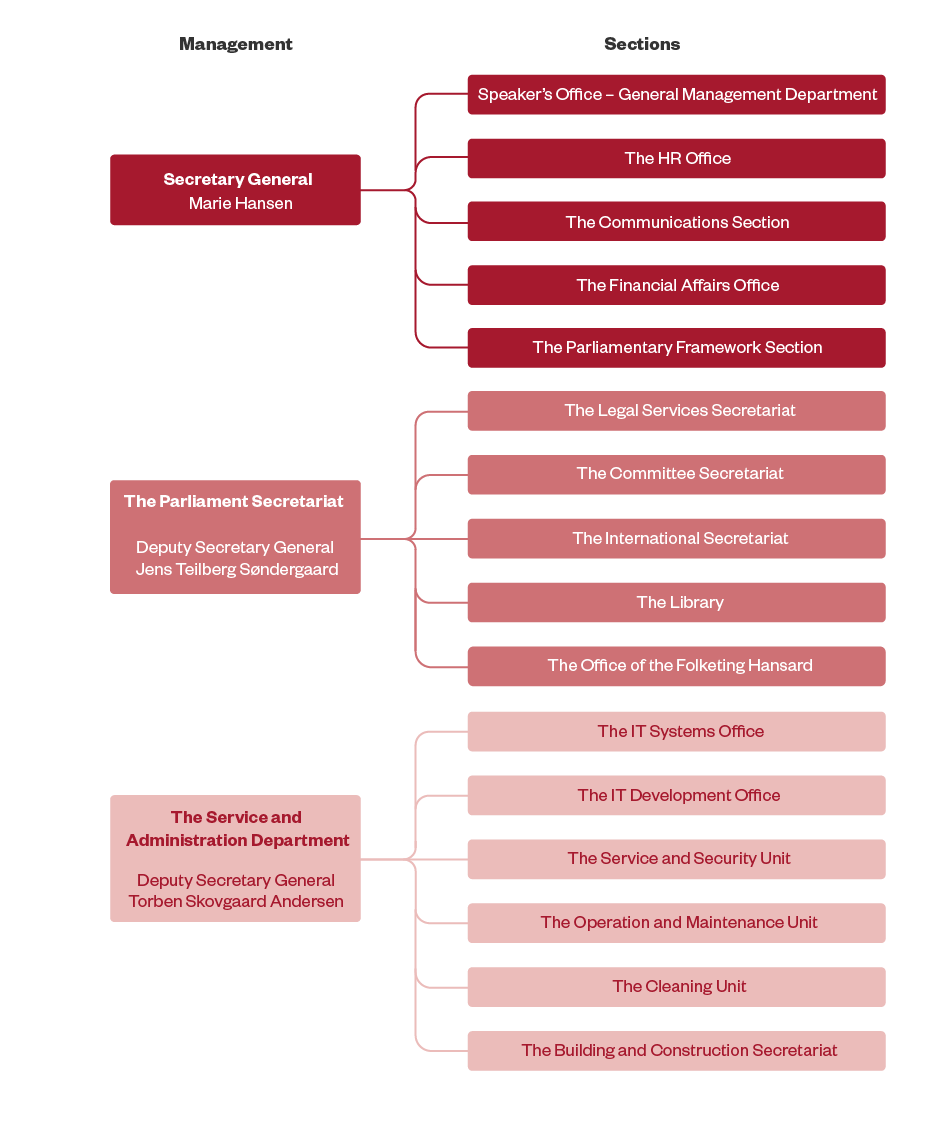The Administration of the Danish Parliament employs approximately 465 staff whose job is to ensure optimal working conditions for MPs by offering assistance and service. For example, Administration employees make sure that offices are clean, that IT systems work effectively, that detailed minutes of parliamentary debates are available and that MPs' guests are taken on guided tours of Christiansborg Palace.
Various categories of staff, ranging from secretaries, drivers, lawyers, managers and inspectors to Parliament Officers, cleaners, tradesmen and librarians are therefore employed at the Administration of the Danish Parliament.
Organisation and employees
The Administration of the Danish Parliament is headed by a management board comprising Secretary General Marie Hansen and two Deputy Secretaries General each with specific areas of responsibility. The management team, which refers to the management board, comprises 16 managers, with distinct areas of responsibility.
